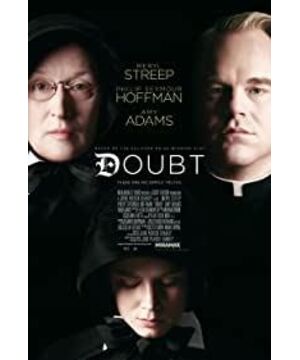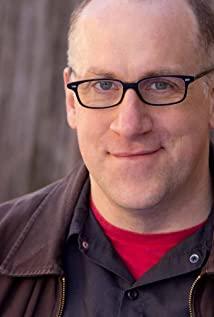Just like the English who can't understand "After the Storm", the Americans in the church are equally puzzling to me. Some cultures that can only be understood by local people can easily become obscure under the interpretation of local people. Things that local people know a little bit often lead to Doubt among residents across the Pacific Ocean.
Watching this film, I was just confused by American subtlety. The following is my personal guess, I don't know if I understand the script correctly.
First: Do the priest and the child have any JQ?
Since the entire child abuse suspicion is based on the conjecture of the old nun without evidence, we can also rely on the priest's sworn testimony to believe that there is no illicit relationship between the two, at least in the district. Nothing happened.
The priest's description of the cause and effect of the incident is very credible (I really don't understand why the two nuns never asked Mr. Mcg whether the priest lied or not), even if he really wanted to start with the child, Don't make a high-profile call to the teacher while the child is in class and tell the child to come over immediately~
Second: Whether the priest and the child have an alternative orientation
, I think not only the priest, but also the child.
The old nun asked the priest why he had been transferred three times before, but the priest was dumbfounded. From the words that the priest asked the old nun if he had committed any major mistakes in his life, and the confession in the old nun's resignation letter when the old nun told the goddess goddess Xiao Xiu before she left, it can be seen that the priest did have a tendency to pedophilia, and even had a criminal record before. . But this does not prove that the priest has a favorable impression of the black children in this incident, and even if there is, it does not prove that they did something together. In fact, we can see from the film that the priest may be more sympathetic and caring for the children.
As for the child, we must study the conversation between the old nun and the child's mother. The version I read is not very well translated. Based on my personal English level, I can roughly understand the conclusion that the child's mother knows that the child is gay, and this is also the main reason why the child's father beats the child. The mother of the child was not sure whether the priest had an affair with the child. Instead of worrying about it, she was more afraid that the child would be dropped from the school or the child's father would beat the child to death if he found out.
Maybe the child has a kind of gratitude to the priest and worships (at the beginning of the film, the child said that he wants to be a priest like a priest) and then develops dependence and admiration, but this time, the priest obviously has no desire to attack the child. Maybe that time in the restricted area, the priest had declined the child's request, which may be the part of the priest's reservation to the old nun.
Third: Questions about shirts, ropes, and other things
Even though the priest is completely innocent in this incident, the fact that he confessed to the old nun does not explain the origin of the shirts. If it's just an ordinary heart-to-heart talk, why is the child's shirt left with the priest? We can assume that the child was just beaten by the father, so the priest asked the child to go over to comfort him and let the child change clothes? There is still something wrong with this. If the two had had a relationship, as the old nun suspected, the shirt problem would have been entirely explainable, but it was clearly not the truth. So this is one of the questions I don't understand.
The second problem is the doubts about cultural differences. When the little nun anxiously reported her doubts to the old nun, what was the meaning of the rope in her hand. . . Do you want to say that the priest has smothered the child?
Question 3, after the priest's first sermon, what does it mean for the black child to look up at the bird on the roof? Is it a metaphor that the child is not free like the bird in the church? ?
The overall style of this film is relatively dull, the scene is relatively simple, and there are large sections of pure conversation. And all the conflicts are pushed to a climax in pure conversation, leaving the Chinese audience with so many speculations and ideas at the end, which is really amazing. Of course, a large part of this stems from the wonderful performances of the two old actors and the script based on this Pulitzer Prize novel, which is very profound. This film is not my type, but it can make me reluctantly stop watching it, and it's really amazing to write such a large part of it. With my shallow thinking, I guess I can't see through the full connotation of the script, but I can't deny that it's a good film, just like "Lust, Caution" that Americans can't understand is actually a perfect masterpiece. Sometimes, it is necessary to watch this kind of film, which can only be understood by having a deep insight into foreign cultures. It helps us to understand the different values of different people and learn to respect and accept them. After watching this film, even if you can't understand the profound meaning it wants to express, you should at least be aware of the old nun's narrow, incomprehensible way of doing things. After understanding this, as a Chinese, you should It's not worth watching this American movie.
View more about Doubt reviews











